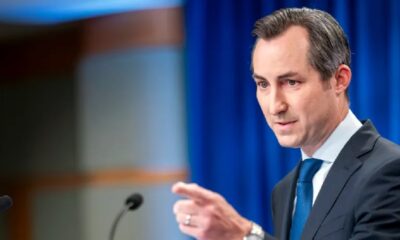Latest News
UNAMA chief delivers stark report to UN Security Council
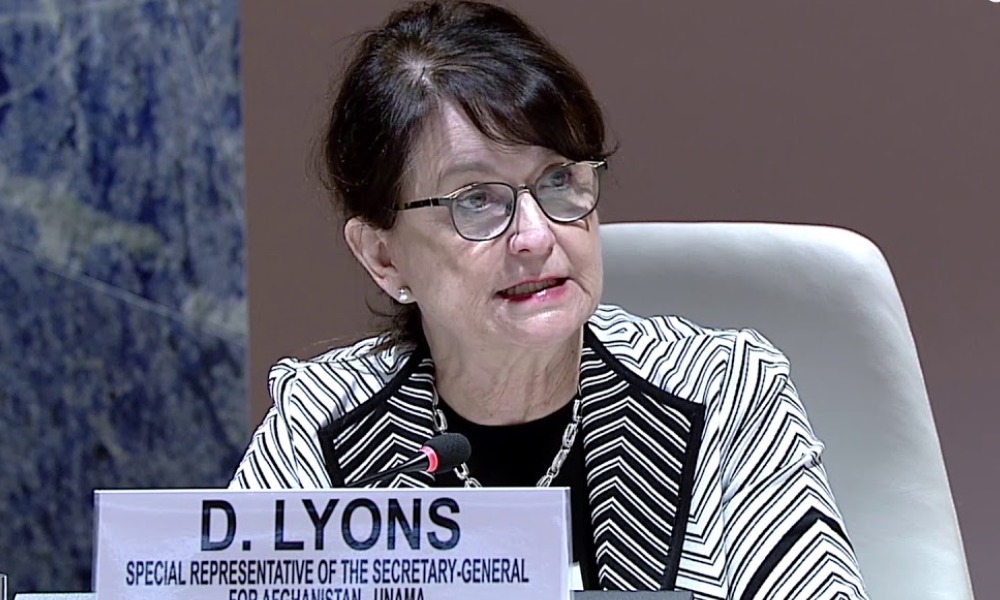
United Nations Assistance Mission in Afghanistan (UNAMA) chief Deborah Lyons sounded the alarm on Tuesday when she told the UN Security Council that soaring rates of violence continue to hamper humanitarian efforts in the country.
She said that six months into Afghanistan’s latest round of peace talks, progress remains slow and demands strong support from the global community.
“We always knew that this would be a complicated peace,” said Deborah Lyons, as she briefed the 15-member Council during a videoconference meeting.
Describing Tuesday’s meeting as a chance to take stock six months after the launch of the Afghanistan Peace Negotiations, the signing of an agreement between the United States and the Taliban and a joint declaration between Kabul and Washington, D.C., she said attacks against civilians have only escalated.
The extreme violence is leading both Afghans and their international partners to voice understandable frustration. “The killings, the displacement, the suffering of the Afghan people must end now,” she stressed.
Noting that the first two months of 2021 saw a worrying spate of brutal attacks deliberately targeting civilians. She said the deaths of more than 80 Afghans — including media staff, civil society, members of the judiciary, religious scholars and government officials — have been recorded to date.
“This does not convey the full, crippling impact of the violence on Afghanistan’s civic life,” she said, adding that for every Afghan killed, many more leave their professions or plan to flee the country.
She also stated that ISIS-K (Daesh) claimed responsibility for 25 violent attacks in the last quarter, a steep increase, and she highlighted a deepening humanitarian crisis and the threat of drought. Food insecurity is at record levels, with more than 40 per cent of the population at emergency and crisis levels, she said..
Against that backdrop, she called on the international community to contribute generously to the humanitarian response plan, which is only six percent funded, while warning that money alone is not enough.
She also said humanitarian workers continue to be targeted by threats and violence, and the impartial delivery of aid is obstructed.
Emphasizing that such acts are illegal and unjustifiable, she recalled that she recently raised those issues with Taliban leaders and her office has been working with the Afghan government to ensure its legislative framework protects the space of non-governmental organizations carrying out humanitarian work.
She said all these developments are taking place against the backdrop of slowing progress in the peace talks in Doha. She said both sides need to continue to show their commitment to remaining at the negotiating table.
Welcoming the appointment of Jean Arnault of France as the Secretary-General’s new Personal Envoy on Afghanistan and Regional Issues, she said Member States have also played a vital role in coming up with new initiatives to reinvigorate the peace process.
Pointing to a proposed meeting in Turkey as another such opportunity, she stressed that such initiatives must be focused, coherent and, above all, they must reinforce rather than undermine the Doha negotiations.
According to Lyons, decades of conflict have created real grievances on all sides, as well as a deep lack of trust among the parties.
She also said there are genuine and profound differences between the Afghan Republic and the Taliban’s desired end State.
Addressing those issues will continue to require patience and commitment on both sides, she said, adding that any lasting peace settlement must consider the views and concerns of all Afghans and not just those of an elite few.
She said she hopes by her next briefing to the Security Council real progress would have been made.
Lyons stated that she hopes by June, there would have been at least a substantial de-escalation of violence, if not a ceasefire.
While those developments could mark a real turning point, the road ahead is still not clear and “we are moving into a period of great uncertainty, she said.
Shaharzad Akbar, Chairperson of the Afghan Independent Human Rights Commission, also briefed the Council, stressing that the war in Afghanistan remains one of the world’s deadliest conflicts for civilians.
She said the onslaught of attacks has further diminished the country’s civic space, leading to self-censorship for journalists, human rights defenders and religious scholars, and thus impacting the quality of public engagement and debate on issues critical to Afghanistan’s present and future.
Akbar also stated that the country’s peace talks remain dominated by a group of elite men, some of whom have themselves been responsible for perpetuating violence.
“Building peace takes more than a deal among elites,” she said, calling for a more inclusive national endeavour that ensures the participation of women, minorities, youth, civil society and the vibrant Afghan media, as well as victims.
A minimum of 30 percent of the participants in the peace talks should be women, and more steps are needed to achieve full gender balance in the future, she said.
“At the recent conference in Moscow, I, like many Afghan women, was shocked and angered to see only one Afghan woman, Dr. Habiba Sarabi, in a room full of men discussing the future of my country,” she said.
Afghan women have fought for their human rights for many decades, and have made considerable progress in education, employment and political participation. They are experts everywhere, from the fields of politics to public administration, security, business, science and information technology.
Excluding or marginalizing them from the main discussions about the future of Afghanistan is not only unjust and unacceptable, but unwise and unhelpful to a lasting peace, she said.
Latest News
UN envoy meets Indian foreign minister to discuss Afghanistan
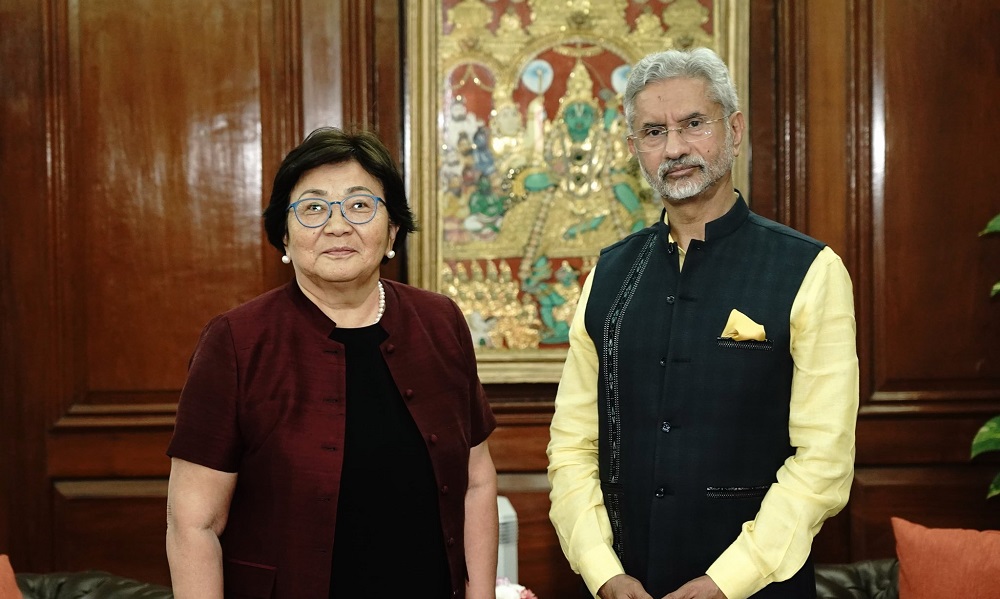
Roza Otunbayeva, the UN Secretary General’s Special Representative for Afghanistan, met with the Indian Foreign Minister Subrahmanyam Jaishankar in New Delhi and discussed issues related to Afghanistan, it was announced on Thursday.
During the meeting, Otunbayeva thanked India for “its critical humanitarian support and longstanding friendship for the Afghan people” and discussed the importance of regional and international cooperation to address prevailing challenges in Afghanistan, UNAMA said on X.
Jaishankar also said on X that the sides exchanged views on the current situation in Afghanistan.
“Underlined that India has provided wheat, medicines, pesticides and school supplies. Appreciate the role of UN agencies as partners in these endeavors,” he said.
Latest News
Traffic accident leaves one dead, four injured in Herat
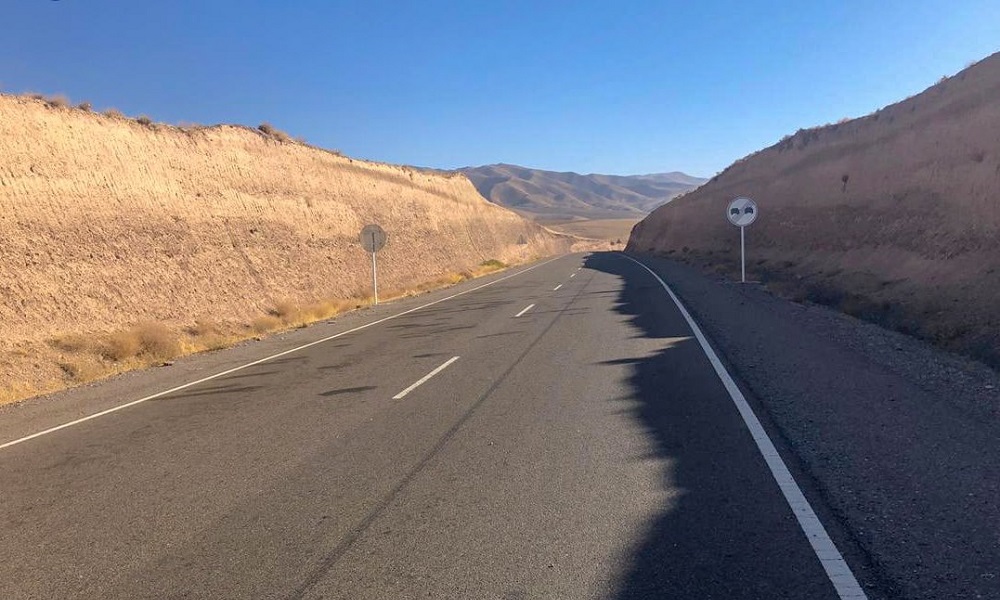
Local officials in Herat say one person was killed and four others injured due to a traffic accident in Karukh district of the province.
The accident took place on Thursday night at 8:pm.
The injured individuals have been taken to Herat’s regional hospital by the personnel of Karukh district police headquarters, local officials said.
Latest News
250,000 Afghan children need homes, food, education after returning from Pakistan
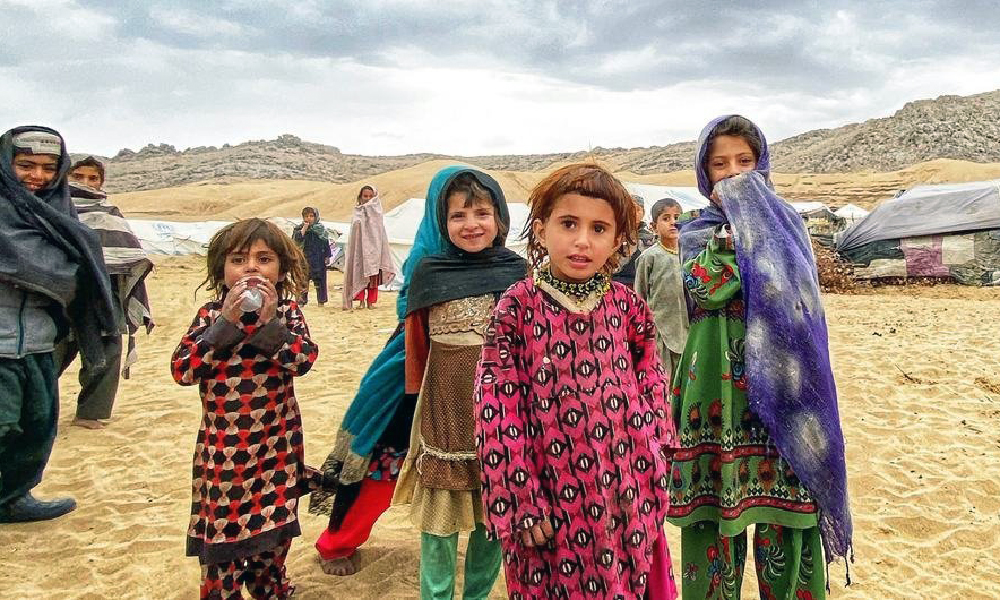
In the wake of an announcement by Pakistan that it intends to start Phase Two of deportations of Afghans, Save the Children said Thursday that almost a quarter of a million Afghan children need proper homes, food, and access to education after returning from Pakistan in the past seven months.
In a statement issued by the organization, Save the Children said more than 520,000 Afghans have returned from Pakistan since September last year, after Pakistan said all undocumented foreigners must leave the country voluntarily or face deportation.
Nearly half of all the returnees are children.
A survey by Save the Children of families who have returned to Afghanistan – and the communities who are hosting them – found that nearly all (99%) do not have enough food for the next one to two months.
About three-quarters of returnees and families in host communities reduced portion sizes or restricted the food consumption of adults so small children could eat.
About 40% of returnees and host families surveyed had to borrow food or rely on friends and relatives for at least three days a week – with 13% of returnees and 9% of host families saying they had to get food from others every day.
Almost 8 million children in Afghanistan – or one in three – are facing crisis levels of hunger.
Nearly one in six families live in tents, according to the survey, with most returnees having little or no means to support themselves.
Only a third had managed to bring assets back with them from Pakistan.
Nearly half (47%) said there were no jobs available in Afghanistan, with 81% saying that they do not have any skills that could lead to employment.
Almost two thirds (65%) of children who have returned to Afghanistan have not been enrolled in school. The majority (85%) told Save the Children that they don’t have the necessary documents to register and enroll in school.
In Pakistan, more than two thirds of these children had been attending school.
Arshad Malik, Country Director for Save the Children in Afghanistan, said: “Families are returning to Afghanistan with virtually nothing. Most are relying on relatives or friends to support them – and these communities already have little to support themselves.
“The return of so many people is creating an additional strain on already overstretched resources. Children need support and stability. Many undocumented Afghan children were born in Pakistan – Afghanistan is not the place they call home,” he said.
He added that in addition to the returns from Pakistan, 600,000 Afghans arrived from Iran last year. Also, “families have been forced from their homes by multiple disasters, including the series of earthquakes in Herat and the ongoing drought. Afghanistan is also now home to the second largest number of internally displaced people in the world – or roughly 1 in 7 people,” Malik said.
According to him, Afghanistan not only needs urgent funding from international donors and governments – but also needs long term, community-based solutions to help all displaced Afghans rebuild their lives.
-

 Sport4 days ago
Sport4 days agoACL fever grows as fixtures finalized
-

 World4 days ago
World4 days agoUS will not take part in any Israeli retaliatory action against Iran
-

 Latest News4 days ago
Latest News4 days agoOver 50 people dead in traffic accidents over Eid
-

 Latest News4 days ago
Latest News4 days agoUS identifies Kabul airport suicide bomber
-

 Latest News4 days ago
Latest News4 days agoGood rains enable DABS to increase power production in Kabul
-

 Business4 days ago
Business4 days agoAfghanistan-Kazakhstan chamber of commerce opens in Herat
-

 World3 days ago
World3 days agoIsraeli military vows response to Iran attack as calls for restraint mount
-

 Latest News3 days ago
Latest News3 days agoPakistani police give Afghans in Balochistan one day to leave










